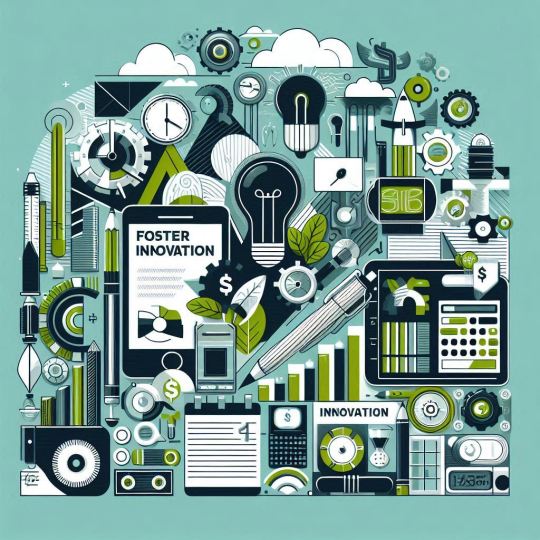Welcome to BussTalks! Are you passionate about business and startups? You've come to the right place! Here, we bring you the latest insights, strategies, and success stories from the world of entrepreneurship. Whether you're a budding entrepreneur, a seasoned business owner, or simply a business enthusiast, our channel is designed to empower and inspire you. What We Offer: - In-Depth Business Insights: Stay ahead of the curve with our expert analysis and commentary on the latest business trends and market dynamics. - Startup Success Stories: Learn from the journeys of successful entrepreneurs and startups, and discover the secrets behind their success. - Practical Tips: Get actionable advice on business planning, and more to help you grow your business. - Interviews with Industry Leaders: Gain valuable insights from interviews with top business leaders and innovators. - Community Engagement: Join our community of like-minded individuals, share your experiences, and learn from others.
Don't wanna be here? Send us removal request.
Text
Future Digital Assets: An Exploration of the Crypto Trends

The cryptocurrency world is constantly changing with significant improvements, regulatory changes and market movements prompting companies to either adopt or expand their existing business models. So, what are the trends that will define digital assets in the future?
Now: Rising adoption of digital currencies by the mainstream financial institutions as well as businesses marks the crypto market in 2024. While original cryptocurrencies like Bitcoin and Ethereum are still leading, new entrants come in with novel features.
AI & Cryptocurrency Trading: AI Advances in cryptocurrency trading with machine learning algorithms that can analyze the data, predict market movements, and execute trades accurately. This makes trade execution more efficient and reduces human error.

On Blockchain innovations — recent changes in the Engineering discipline of blockchains such as, sharding or layer-2 solutions that improve scalability, security, and interoperability are helping make blockchain more reliable and flexible.
Investment Strategies in Digital Assets: You need to become familiar with various investment strategies available in Crypto market which includes the trends of the market, risk management and a proper diversification. Keeping an eye on those Bitcoin price predictions and Ethereum 2.0 updates are key to making decisions.
Regulation: “Governments and regulators around the world pay more attention to cryptocurrencies”. With the regulatory environment changing quickly, it is important to appreciate both compliance and growth possibilities.

Decentralized Finance (DeFi) — By providing decentralized versions of every financial service, DeFi is replace them with trust-minimized and highly-resistant smart contracts to provide similar services. These amenities facilitate the direct lending, borrowing and trading of digital assets without intermediaries—thereby providing users with an increased degree of financial autonomy.
Market Trend and Forecast: A thorough market trend enables to grasp market dynamics, whilst making sure about the reported forecasts, get declared predictions. One of the few remaining concepts is the volatility of crypto markets affected by sentiment, regulatory news and technological advancements.
On the level of adoption, we are experiencing a gradual increase in use cases as more organizations now receive payments with this digital asset as well as their customers conducting transactions which are growing.

Blockchain and AI: Combining features of blockchain with the capabilities of AI -this collaboration maximizes data security, improves efficiency and facilitates smarter decision-making, which mean that it can support new generation paradigms in many different markets.
#business#business growth#innovation#startup#entrepreneur#100 days of productivity#crypto#blockchain#tech#ai#finance#defi#trading
1 note
·
View note
Text
The Ultimate Guide to Business Software for Entrepreneurs
Key Takeaway- As a marketer, the way you execute marketing and how successful it will be is largely going to depend on the tools you use. Effectively using business software is important for a start-up founder or an established entrepreneur and in order to succeed, you absolutely cannot overlook the learning curve aspect! A short and sweet guide to some of the key types of business software tutorials.
QuickBooks: The Easiest Way to Do Accounting

Quickbooks is best for managing your finances efficiently in a business sign locale. To begin, create an account and connect your bank accounts. Understand how to create and send invoices, track expenses while churning out fancy financial reports
Project Management In Asana:

It is the best tool for project management, as it enables you to trace hours in Asana, your top alternative. Organize your projects into tasks and assign them to the team. Track progress with boards, timelines and integrate Asana with Slack and Google Drive.
HubSpot CRM for Better Customer Management

HubSpot CRM is a system for tracking and organizing interactions and data in an easy way. Get started with your account by importing contacts and tracking deals in your Sales Pipeline. Automate follow-up emails, and create performance reports.
Email Marketing, Master MailChimp

It is perfect for email campaigns. Create an account, collect emails, design campaigns using drag-and-drop editor and configure email automation. Use Mailchimp analytics tools to rank the performance of campaigns.
Conclusion
Being proficient in business software is the key to getting things done more efficiently as your company evolves and grows. After learning from these, you will have enough tool to make best of it.
#business#business growth#innovation#startup#entrepreneur#software#accounting#marketing#customer management#project management#project managers
1 note
·
View note
Text
Best Business Software Tools in 2024
The right software tools can help increase productivity, draft operations more efficiently and promote company growth in today's high-paced business environment. Whether you are a start-up or an existing enterprise the following business software is necessary to improve different areas of your business.
1. Project Management: ClickUp

It is a feature-laden project manager that lets you handle tasks, projects, and workflows of all types. Its ease of use and user-friendly interface, complimented with diverse dashboards cater to audiences between small teams and large organizations. Task assignments, time tracking, goal setting, and collaboration options allow you to stop hopping between spreadsheets and emails so your projects are complete efficiently.
2. CRM–– Zoho CRM
Zoho CRM — Your Intelligent Customer Relationships Management System. Among other features, it has lead management, sales automation, and analytics to make sales performance improve on a consistent streamline both administrative aspect as well as customer satisfaction. Due to its integration capabilities with other Zoho products, as well as most third-party applications, It has become a flexible option for businesses that are ready to supercharge their customer relationship management.
3. Accounting: Zoho Books

Zoho Books- The Best Accounting Software for Business Owners Invoicing, expense tracking and financial reporting are some of its features. You can also rest assured that your taxes are being handled correctly and always have the latest view of your financial health to help you manage your finances better.
4. HR Management: monday. com HR
It is a complete human resources management software that helps companies to better structure their workforce. This system provides with facilities like employee on boarding, performance tracking, payroll management etc. With the platform's ease of use, UI simplicity, and automation capabilities in HR processes that would otherwise take hours away from key HR initiatives.
5. Payroll: OnPay

OnPay is an excellent payroll software for businesses of all sizes. It is a cloud payroll software for businesses that ensures complete compliance and automation of top-class payroll calculations, tax filings & employee payments. Additionally, OnPay provides HR and benefits management tools, effectively providing a full-fledged employee pay management solution.
6. Point-of-Sale (POS): eHopper
Versatile Point of Sale Software for Businesses Up To Mid-Sized It offers services like Inventory management, sales tracking and customer management. This makes eHopper a perfect choice for businesses that intend to simplify their sales operations using an affordable and intuitive POS system.
7. Inventory Management: Cin7

While there are plenty of other inventory management systems available, Cin7 stands out as one of the most popular options for small to mid-size businesses (SMBs) looking to get their stock levels, orders and supply chain operations under control. These functionalities consist of real-time inventory monitoring, order processing and e-commerce platform integration. With the powerful feature set of Cin7, businesses can keep inventory at an optimal level and fulfill customer demands to the hilt.
8. Website Builder: Weebly
Weebly is the website builder that you can also use to build your site or blog. It has lots of customizable templates, drag-and-drop functionality, and e-commerce ready to go. With Weebly, you can create a professional website even if you are a tech noob and give your business the relevant online visibility it needs.
9. Recruiting: ZipRecruiter

ZipRecruiter: Popular rated job search app for businesses on board. They provide hiring solutions through features like job posting candidates filtering and tracking the application. AI-powered matching from ZipRecruiter surfaces more relevant candidates to businesses faster.
10. VPN: NordVPN
It is a secure, encrypted VPN application that will make sure that you and your business stay safe as you work with the web. It provides features of encrypted connections, threat protection and global server access as well. In this way, It guarantees secure data in companies and privacy on internet.
Conclusion
The business software tools a company uses are very important to increase productivity and power growth. The above-mentioned tools are some of the best & flexible according to the fact which can assist businesses for any sized groups and help them attain their desired objectives. Implementing these tools in your operations can also help speed up processes and lead to higher customer satisfaction, as well as allow you to be on top of the competition.
#business#business growth#innovation#startup#entrepreneur#100 days of productivity#project management#sales#payroll#hr management#hr software#hr services#ai#artificial intelligence#technology#tech#techinnovation
2 notes
·
View notes
Text
10 Best Marketing Tricks for 2024
When it comes to business, leading the pack is everything in a rapidly changing domain of industry. So, as we approach 2024, let me give you the top 10 marketing advice that will help guide you through the challenges and also conquer the opportunities of the New Year:
1. Embrace AI and Automation
Marketing AI and Automation are changing the Game Editorial Staff AI-powered chatbots and predictive analytics make it easier to engage with customers. They also help to improve conversion rates, tweaked in real-time as necessary. For example, with the help of AI you can opt customer data analysis to tailor marketing campaigns in such a way that your message will be connected with your audience.
2. Leverage Social Media

Social platforms are an integral part of any marketing strategy. 2024: Produce engaging + interactive! Use Instagram Stories, LinkedIn articles & more. In this regard, some would say to create TikTok videos and whatnot. The key is as always consistency which builds your retinue of followers.
3. Invest in Content Marketing
Content remains the king. Create a blog post, video, infographic or podcast calendar Optimize your content for SEO and encourage it on search engines. An industry trends blog post that is well-researched can position your brand as a thought leader, for instance.
4. Customer Experience Must Be Your First Priority

Customer experience (CX) is the new big differentiator. Provide a seamless and easy customer experience at every possible touchpoint, whether that be on your website or through customer service. Set up feedback loops for ongoing improvement of your CX strategy.
5. Utilize Influencer Marketing
Why we are just now finding out about something — influencer marketing is already shifting. Micro-influencers (those with smaller, but ultra-engaged followings) will be even more valuable in 2024. Work with influencers that have the same values as you to create an image of reliability and authority.
6. Focus on Video Marketing

Videos are more engaging than textual content. Create videos that show consumers who you are as a brand, how your product works or what it do for them, and curated video content. These are the great platforms to reach a large audience like Youtube and Tiktok.
7. Optimize for Voice Search
Optimizing for voice search As smart speakers and voice assistants have become more popular, it is essential that you optimize your articles for voice search. Make sure your content is not formal and answer basic questions that 8/10 of an audience want to ask you. Adding schema is known to increase the possibility of showing up in voice search.
8. Incorporate Data-Driven Marketing

It is a form of marketing in which decision making is done using past data driven results. Use analytics tools for performance tracking all of your campaigns and customer behaviour. It enables you to tweak your strategies and get better results.
9. Three Ways to Tailor Your Marketing Efforts
And it has nothing to do with popping someone's first name in an email. Personalize messages through data based on customer preference and behaviour For instance, suggest products according to their purchase history or give exclusive offers for your customers based on any special occasion.
10. Stay Agile and Adaptable

Marketing is a field that has always been evolving — but never as fast and dramatically as today. Do not remain idle as the market changes and be prepared when you need to step away from your established way if it is outdated, or losing effectiveness. That ability to pivot is going to be the key to negotiating the uncertainties of 2024, a lesson we would all do well to heed.
Use these marketing tips to set your business on the trajectory towards success in 2024. And finally, as ever, the key to a very good marketing is knowledge and flexibility and putting your customers before anyone else always.
#marketing#business growth#business#growth#startup#entrepreneur#100 days of productivity#unicorn#innovation
2 notes
·
View notes
Text
Success Stories of Entrepreneurs: Encouraging Paths to Success
The so-called entrepreneurial rollercoaster is, in business world terms, the journey of an entrepreneur filled with challenges, risks and uncertainty. Yet the stories of those who have cleared these obstacles in their course while still being successful weigh as a hope for new young entrepreneurs. In this article, we explore the success stories of five extraordinary entrepreneurs who have left a big mark in their industries.
1. Adi Dassler - Adidas

Adi Dassler, founder of Adidas began his shoemaking career in a washroom at the back of his mother's house in Herzogenaurach near Nuremberg. He was committed to making the best possible sports shoes for athletes. Dassler constructed shoes for the athletes, using feedback from what they liked and needed. His hard work paid off in 1954, when the Adidas cleats that he would sell to German football enthusiasts led Germany to victory over Hungary at the World Cup.
2. Whitney Wolfe Herd - Bumble

And Bumble Founder Whitney Wolfe Herd, by requiring that women make the first move in an environment where men usually have to chase changed a part of online dating. Last year, Wolfe Herd departed Tinder under a cloud of extremely messy legal battles and personal attacks. Despite this, with perseverance and her persistence in the vision it became what is Bumble today— millions of users across continents not only for dating but as a networker to find your next job or simply make friends.
3. Melanie Perkins - Canva

Canva is a tool which Melanie Perkins launched to democratize design and put it into the hands of any individual. From its humble beginnings in a small office in Perth, Australia the business that Perkins began has reached around two billion users from 190 countries was rejected by investors multiple times Fast forward, her perseverance pays off and Canva is worth over $40B with millions of users designing beautiful graphics effortlessly.
4. Where are they now: Neil Blumenthal, Dave Gilboa and co-founders of Warby Parker

For example, Warby Parker founders solved the problem of buying stylish glasses that do not cost an arm and a leg by moving sales online. The company's novel approach, including a home try-on program, has brought quality eyewear to a wider range of customers. And really, Warby Parker is a great example of the magic that can happen when you combine social impact with business.
5. Sophia Amoruso - Nasty Gal

Sure, the rise of Sophia Amoruso from selling used clothing on eBay to running an internationally successful fashion empire is nothing short of amazing. It has struggled to stay afloat for years, even filing bankruptcy in the process. It is just an underscore of what being resilient and adaptable means in entrepreneurship.
The takeaway for aspiring entrepreneurs
1. Client-focused: you need to understand and fulfill what the customer needs. The story of Adi Dassler and his success with Adidas makes it more clear about the significance of gathering customer feedback.
2. Resilience and Adaptability: In the stories of Whitney Wolfe Herd and Sophia Amoruso, it is apparent how resilience pays huge dividends during adversity; as does adaptability with a knack for changing circumstances.
3. Innovation and Disruption: — examples including builds like Warby Parker as well as on the same stage, Melanie Perkins from Canva showing how innovative business models can disrupt traditional industries leading to new opportunities.
4. Social Impact: We have learned from the success of Warby Parker that integrating business with social good can create a strong bottom line and meaningful change in society
5. Persistence: This was shown to me by the one and only Melanie Perkins, journey with Canva, we both know that 99 No's and a Yes means you go on from there.
Conclusion
These entrepreneurs have managed to succeed and their journeys can be a great source of inspiration for other fellow budding futurepreneurs. Through an unwavering commitment to customer satisfaction, a firm dedication to innovation and resilience in the face of failure and overcoming business challenges on your quest for social effectiveness success is something challenging but perfectly achievable.
1 note
·
View note
Text
Best 10 Business Strategies for year 2024
In 2024 and beyond, businesses will have to change with the times and adjust their approach based on new and existing market realities. The following are the best 10 business approach that will help companies to prosper in coming year
1. Embrace Sustainability
The days when sustainability was discretionary are long gone. Businesses need to incorporate environmental, social and governance (ESG) values into their business practices. In the same vein, brands can improve brand identity and appeal to environmental advocates by using renewable forms of energy or minimizing their carbon footprints.
Example: a fashion brand can rethink the materials to use organic cotton and recycled for their clothing lines. They can also run a take-back scheme, allowing customers to return old clothes for recycling (not only reducing waste but creating and supporting the circular economy).
2. Leverage AI

AI is revolutionizing business operations. Using AI-fuelled solutions means that you can automate processes, bring in positive customer experiences, and get insights. AI chatbots: AI can be utilized in the form of a conversational entity to support and perform backend operations, as well.
With a bit more specificity, say for example that an AI-powered recommendation engine recommends products to customers based on their browsing history and purchase patterns (as the use case of retail). This helps to increase the sales and improve the shopping experience.
3. Prioritize Cybersecurity
Cybersecurity is of utmost important as more and more business transitions towards digital platforms. Businesses need to part with a more substantial amount of money on advanced protective measures so that they can keep sensitive data private and continue earning consumer trust. Regular security audits and training of employees can reduce these risks.
Example: A financial services firm may implement multi-factor authentication (MFA) for all online transactions, regularly control access to Internet-facing administrative interfaces and service ports as well as the encryption protocols to secure client data from cyberattacks.
4. Optimizing Remote and Hybrid Working Models

Remote / hybrid is the new normal Remote teams force companies to implement effective motivation and management strategies. Collaboration tools and a balanced virtual culture can improve productivity and employee satisfaction.
- Illustration: a Tech company using Asana / Trello etc. for pm to keep remote teams from falling out of balance. They can also organise weekly team-building activities to keep a strong team spirit.
5. Focus on Customer Experience
Retention and growth of the sales follow-through can be tied to high quality customer experiences. Harness data analytics to deepen customer insights and personalize product offers making your marketing campaigns personal: a customer support that is responsive enough can drive a great level of returning customers.
Example – For any e-commerce business, you can take user experience feedback tools to know about how your customers are getting along and make necessary changes. Custom email campaigns and loyalty programs can also be positively associated with customer satisfaction and retention.
6. Digitalization Investment

It is only the beginning of digital transformation which we all know, is key to global competitiveness. For streamlining, companies have to adopt the use advanced technologies such as Blockchain Technology and Internet of Things (IoT) in conjunction with cloud computing.
IoT example : real-time tracking and analytics to optimize supply chain management
7. Enhance Employee Skills
Develop Your Employees: Investing in employee development is key to succeeding as a business. The training is provided for the folks of various industries and so employees can increase their skills that are needed to work in a certain company. Employee performance can be enhanced by providing training programs in future technology skills and soft skills and job satisfaction.
Example: A marketing agency can host webinars or create courses to teach people the latest digital marketing trends and tools This can help to keep employees in the know which results in boosting their skills, making your campaigns successful.
8. Diversify Supply Chains

The ongoing pandemic has exposed the weaknesses of global supply chains. …diversify its supply base and promote the manufacturing of drugs in Nigeria to eliminate total dependence on a single source. In return, this approach increases resilience and reduces exposure to the risks of supply chain interruption.
- E.g., a consumer electronics company can source components from many suppliers in various regions. In so doing, this alleviates avoidable supply chain interruptions during times of political tensions or when disasters hit.
9. Make Decisions Based on Data
A business database is an asset for businesses. By implementing data, they allow you to make decisions based on the data that your analytics tools are providing. For example, sales analysis lets you track trends and better tailor your goods to the market.
Example: A retail chain can use data analytics to find out when a customer buys, and it change their purchasing policies. This can also reduce overstock and stockouts while overall, increasing efficiency.
10. Foster Innovation

Business Growth Innovation is Key A culture of creativity and experimentation should be established in companies. Funding R&D and teaming with startups can open many doors to both solve problems creatively but also tap into new markets.
Example: A software development firm could create an innovation lab where team members are freed to work on speculative projects. Moreover, work with start-ups on new technologies and solutions.
By adopting these strategies, businesses can navigate the turbulence for 2024 and roll up market — progressive.AI with an evolving dynamic market, being ahead of trends and updated is most likely will help you thrive in the business landscape.
#ai#business#business strategy#business growth#startup#fintech#technology#tech#innovation#ai in business
2 notes
·
View notes